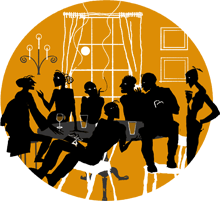Slavery and Anti-Slavery in British History
Tue, Oct 24 2017 05:46
| Permalink
Takes place on Thursday 30th
November 2017, 7.30pm to 9.00pm, at The Island Bar, 14-16 Suffolk Street, B1 1LT
Entrance fee: £5
For centuries
Britain’s record as the leading opponent of slavery has been part of the
country’s identity, and its claim to stand for justice and liberty. Indeed, groups and individuals in Birmingham played a prominent role in the anti-slavery movement. But more
recently historians have been pointing to Britain’s history of slave-trading
rather than that of anti-slavery. Once-lauded British heroes like Admiral
Nelson and Cecil Rhodes are today pilloried as enslavers. Cities that once made
their wealth from slave-trading, today get the tourists in to museums and
exhibits decrying the slave trade.
Though the slave trade has long been
abolished, modern-day campaigners keep re-discovering it.
‘Slavery’ today is
used to mean all kinds of coerced work, from that of prostitutes to live-in
maids – a powerful rhetorical device in framing contemporary campaigns. In the
arts, the appetite for films, plays and novels about slavery is stronger than
ever. Something about the slave as a figure seems strikingly relevant today. In
this Salon, historian James Heartfield will try to shed light on the appetite
for slave histories in the present day.
Speaker
James Heartfield is
the author of a number of historical books about the British Empire, the most
recent being The British and Foreign Anti-Slavery
Society: A History
Recommended Readings:
When Lincoln and Marx were on the same side. Spiked, January 2013
The Lancashire Cotton Famine, 1861-65
Liverpool student fights to remove Gladstone's name from building. Guardian, November 2017
Hall, Catherine. Legacies of British Slave-Ownership. Cambridge University Press, 2016
The Lancashire Cotton Famine, 1861-65
Liverpool student fights to remove Gladstone's name from building. Guardian, November 2017
Hall, Catherine. Legacies of British Slave-Ownership. Cambridge University Press, 2016
Olugosa, David. Black
and British: A Forgotten History. Macmillan, 2016
Williams, Eric. Capitalism
and Slavery. Nabu Press, 2011
True scale of UK slavery likely to involve 'tens of thousands of victims. The Guardian, October 2017
Comments
